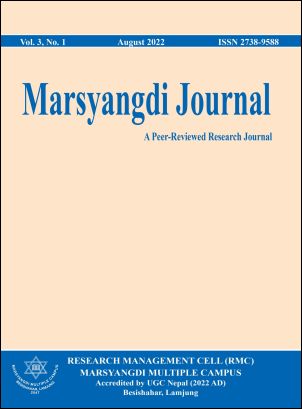Making Dalit Friendly Schools in Nepal: An Ethnographic Study
DOI:
https://doi.org/10.3126/mj.v3i1.47959Keywords:
childhood experiences, problems, interest-based learning, issue-based learningAbstract
Discrimination against Dalit is a socially structured, legally aligned, historically perpetuated, culturally institutionalized, and religiously distinguished phenomenon. In the context of this research, I felt that the inclusion of Dalits in mainstream education needs social, historical, legal, cultural, political, and religious interventions to emancipate them from the chain of ignorance. The strategy of inquiry was qualitative and ontologically it was based on multiple realities. Thus, I used an ethnographic research design using unstructured interviews and participatory observation. School teachers, head-teacher, Dalit students, parents, SMC members, and community people were selected purposely to collect the data for the fulfilment of the objectives. The data were analyzed and interpreted with the lens of Cultural difference theory and Caste hierarchy theory to generate meanings. I also used my reflexivity to be aligned with the research and experiences obtained in the field study.




